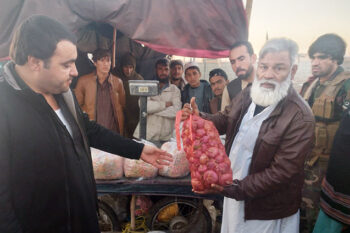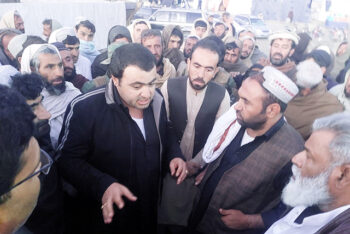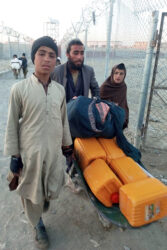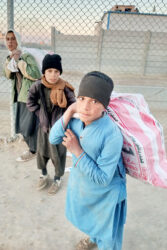The Federal Board of Revenue (FBR) has notified transfers and postings of several Customs officers, with the approval of the Election Commission of Pakistan (ECP), which has imposed a ban on transfers and postings ahead of the upcoming general elections.
Earlier, ,Dr. Zeba Hai Azhar, Member (Customs-Operation), was transferred and replaced by Dr. Fareed Iqbal Qureshi.
The reshuffle comes at a time when the Customs Enforcement and Intelligence & Investigation (I&I) wings are spearheading an anti-smuggling campaign across the country, under the supervision of the Chief of Army Staff (COAS) General Asim Munir.
In addition to Customs Enforcement and Customs Intelligence, the campaign is being carried out on the basis of reports by sensitive agencies, such as the Military Intelligence (MI), the Inter-Services Intelligence (ISI) and the Intelligence Bureau (IB), which are monitoring the entire operation, including the staff involved in it.
The staff up to BS-16 of the Frontier Corps (FC), the Rangers, the Coast Guards, the Police, and the District Administration are also being monitored, and their reports are used to make transfers and postings accordingly.
The Director General of I&I, the Chief Collector of Customs (Enforcement), the Directors of I&I across the country, and all the Collectors of Customs (Enforcement) are having daily meetings with the sensitive agencies and the law enforcement agencies to coordinate their efforts and share intelligence.
Dr. Fareed Iqbal Qureshi, the new Member (Customs-Operation), is considered to be very competent on the Appraisement side, which is a technical field that deals with the valuation and assessment of imported goods. He has been brought in as the Member (Customs-Operation) to streamline the appraisement process and curb under-invoicing and mis-declaration, which are major sources of revenue leakage and smuggling.
The COAS, after the involvement of illegal immigrants in terrorist activities, has also asked the caretaker government to tighten the border controls and enforce the passport and visa requirements for the people crossing the border, especially from Afghanistan and Iran.
The people of Chaman and Kandhar, who share a porous border, could easily cross the border without any documents of any sort, but the caretaker government has stopped this practice and made passport and visa requirements mandatory.
This has led to a protest by the Langris (labourers), the locals, and the Chaman Chamber of Commerce and Industry, who have closed the Chaman border for two months, demanding a relaxation of the rules.
Talking to Customnews.pk, the local business leaders said that locals used pushcarts for movement across border. Even pushcarts are numbered and documented and these pushcarts are also used to move funerals and sick people between the two countries.
They said that the locals in Chaman and Kandhar always cooperate with the authorities and are not involved in any illegal activities.
Customnews.pk also witnessed young kids from Chaman moving edible commodities, such as sugar, to Afghanistan for money, because there are no employment opportunities in the area. These boys and girls hide 2-3 kg of sugar under their clothes and transport the commodity on foot to Afghanistan. These kids earn Rs300 to Rs400 a day making multiple rounds.
The local leaders appealed to the COAS that they are loyal to Pakistan and they are not smugglers, but their families live in both Chaman and Kandhar, and they need some kind of smart card to facilitate their movement.
They said that they cannot afford the visa fees and the passports, and that a smart card is a good idea. They also complained that the Federal Investigation Agency (FIA) staff demand bribes even from those people who have valid visas and passports. Some leaders said that these people are very desperate to go to their families and that the border closure has caused them a lot of hardship.
From Hub chowki, scores of motorcycles go to the Iran border and smuggle Iranian diesel into Pakistan. One motorcycle carries around 120 liters of fuel in drums, which are sold at cheaper rates in the local market.
The local leaders have also appealed to the COAS to create employment opportunities in the region, and to crack down on the real smugglers, who sit behind in their cosy villas and exploit the poor labourers. They said that these smugglers should be brought to justice and their assets should be confiscated.




